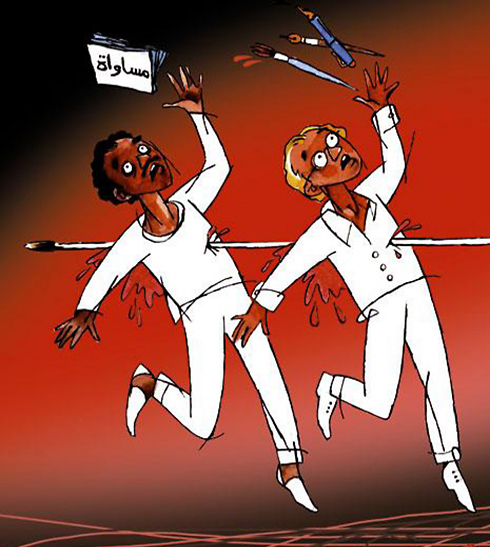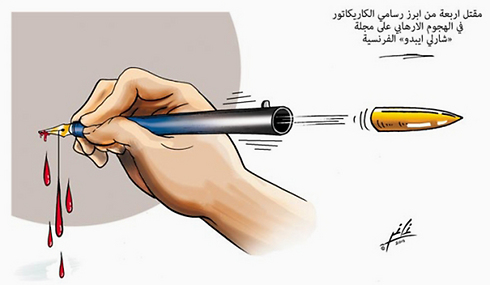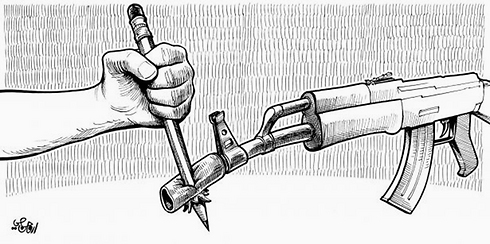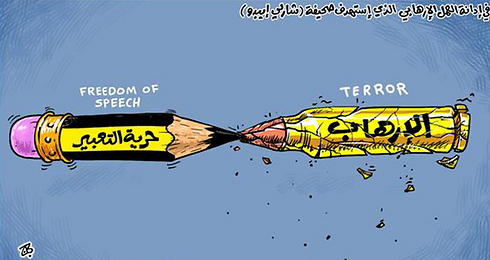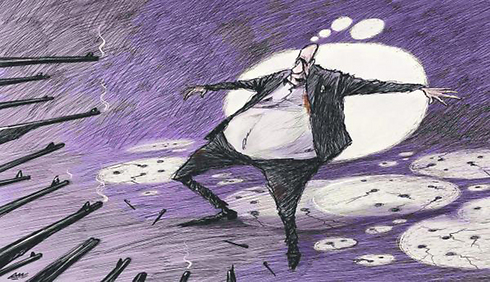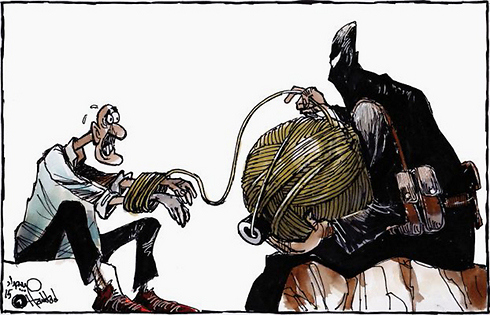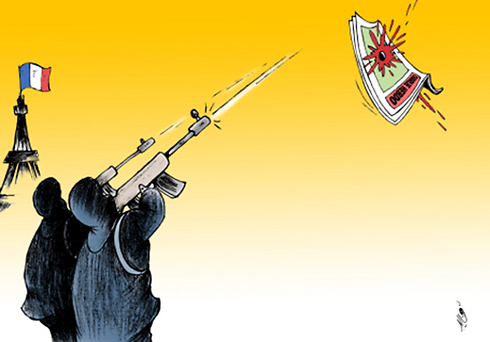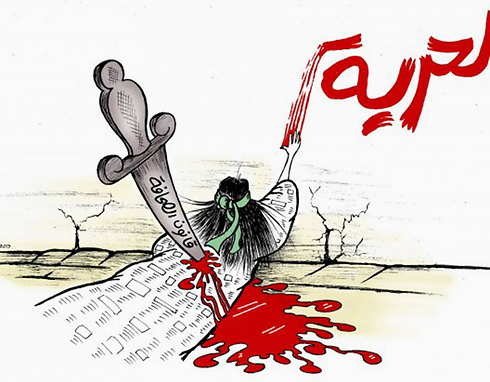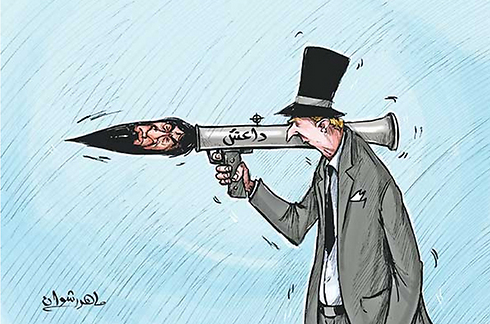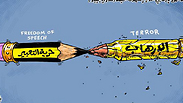
Caricaturists from the Arab world awoke to a complex situation Thursday morning; a day after a deadly shooting on the headquarters of satire magazine Charlie Hebdo left 12 people dead, presumably for the paper's past caricatures of the Phrophet Mohammed.
While the majority choose to express solidarity with the paper, others took a more moderate standing, saying they had nothing to apologize for, as the act does not represent Islam or the Arab world.
Freedom of expression was meant to flourish after the Arab Spring revolts brought down autocrats across much of the Middle East and North Africa. Nearly four years later, many people are still watching their step. Authoritarian rule has returned to many Arab countries while the rise of Islamic State militants who have seized large areas of Iraq and Syria also poses dangers to anyone who dares to debate religion.
Chief among them are satirists, who had felt a greater sense of freedom after the autocrats were toppled in 2011.
"I see what happened (in Paris) as a continuation of what is going on in Syria and Iraq ... The same mentality," said Hany Shams, a cartoonist at Egypt's government-run Akhbar Al-Youm newspaper.
In the Iraqi city of Ramadi, Islamic State foot soldier Abu Saaduldin al-Quraishi laid down the limits of his group's tolerance. "We do not expect any insults against God, his religion or his prophets," he told Reuters. "We will warn against such behaviors and if that does not work, then killing them is better."
In Lebanon, satirists say things are easier but far from ideal. Stavro Jabra, a cartoonist whose work is published in two dailies, said he had known some of the Charlie Hebdo victims.
"We want to defend the freedom of the press, the freedom of the media and the freedom of opinion. This is our mission," said Jabra.
Lebanon had more freedom than other Arab countries, but there were still limits that applied to local leaders as well as the multi-ethnic country's religions. One such was Hassan Nasrallah, leader of the Shi'ite Muslim terror group Hezbollah.
"We can’t get into religions ... If you draw Nasrallah, they will attack you," said Jabra. "If you draw this person or that, it’s forbidden. You get threats, phone calls, emails saying 'this cannot be drawn'."
Reuters contributed to this report














